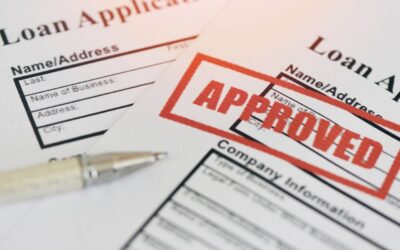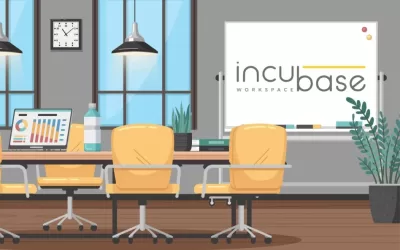At its core, an SBA 504 loan is a financing option designed to help small businesses acquire fixed assets such as real estate and equipment. The program is structured in a way that allows lenders to provide financing to small businesses with lower down payments and longer terms than traditional loans. The SBA 504 loan program is a popular choice for small business owners because it offers low interest rates and long repayment terms.
One of the unique features of an SBA 504 loan is the debenture. What is debenture? A debenture is a type of bond that is sold to investors to provide funding for the loan program. The debenture is a critical component of the SBA 504 loan program because it allows lenders to offer low interest rates to small business owners. By selling debentures to investors, the SBA is able to provide a source of funding for the loan program that is separate from the federal budget.
Key Takeaways About Debentures
- SBA 504 loans are a popular financing option for small businesses.
- Debentures are a critical component of the SBA 504 loan program.
- Debentures are sold to investors to provide funding for the loan program and allow lenders to offer low interest rates to small business owners.
Understanding Debentures in SBA 504 Loans
Definition and Purpose
Debentures are a crucial part of the SBA 504 loan program. In simple terms, debentures are a type of bond that is issued by the Small Business Administration (SBA) to fund the long-term portion of a 504 loan. These bonds are sold to investors on the open market, and the proceeds are used to provide low-cost, long-term financing to small businesses.
The purpose of debentures is to provide a stable, long-term source of funding for small businesses that are looking to purchase real estate or equipment. Because debentures are backed by the full faith and credit of the U.S. government, they are considered to be a safe and secure investment. This makes them an attractive option for investors who are looking for a low-risk investment with a fixed rate of return.
Debentures Role in the SBA 504 Loan Program
Debentures play a critical role in the SBA 504 loan program. When a small business applies for a 504 loan, the loan is typically split into two parts: a first mortgage from a private lender and a second mortgage from a Certified Development Company (CDC) that is backed by the SBA. The second mortgage is funded by the sale of debentures on the open market.
The interest rate on the debenture is fixed for the life of the bond, which is typically 10, 20, or 25 years. This means that small businesses can lock in a low interest rate for the long term, which can help them save money and improve their cash flow. In addition, because the debenture is backed by the full faith and credit of the U.S. government, it is considered to be a safe and secure investment for investors.
Overall, debentures are a key part of the SBA 504 loan program, providing small businesses with long-term, low-cost financing that can help them grow and succeed.
Components of an SBA 504 Loan
An SBA 504 loan is a popular financing option for small businesses looking to acquire fixed assets such as real estate, equipment, or machinery. The loan is structured in three components: the CDC portion, the third-party lender portion, and the borrower contribution.
CDC Portion
The CDC portion of the loan is provided by a Certified Development Company (CDC), a nonprofit corporation that is certified and regulated by the Small Business Administration (SBA). The CDC portion can finance up to 40% of the project cost, with a maximum loan amount of $5.0 million. Certain eligible energy-efficient or manufacturing projects may qualify for up to $5.5 million. The interest rate on this portion of the loan is fixed for the life of the loan, which can be 10, 20, or 25 years. The CDC portion is funded by the sale of debentures, which are bonds that are backed by the SBA and sold to investors.
Third-Party Lender Portion
The third-party lender portion of the loan is provided by a private lender, such as a bank or credit union. This portion can finance up to 50% of the project cost and is secured by a first lien on the assets being financed. The interest rate on this portion of the loan is negotiated between the borrower and the lender and is typically variable.
Borrower Contribution
The borrower contribution is the portion of the project cost that the borrower is responsible for financing. This portion can be as low as 10% of the project cost and must come from the borrower’s own resources, such as cash, equity in the assets being financed, or other collateral. The borrower contribution helps to ensure that the borrower has a stake in the success of the project and can help to reduce the risk for the lender and the CDC.
In summary, an SBA 504 loan is a three-part financing package that includes a CDC portion, a third-party lender portion, and a borrower contribution. The CDC portion is fixed-rate financing that is funded by the sale of debentures, while the third-party lender portion is variable-rate financing that is secured by a first lien on the assets being financed. The borrower contribution is the portion of the project cost that the borrower is responsible for financing and helps to reduce the risk for the lender and the CDC.
Benefits and Risks of Debentures
Advantages for Small Businesses
Debentures are a crucial part of an SBA 504 loan, and they offer several benefits to small businesses. First and foremost, debentures are 100% guaranteed by the federal government, which makes them a safe and desirable investment for lenders. This guarantee also translates to a lower interest rate for the borrower, which can save a significant amount of money over the life of the loan.
Another significant advantage of debentures is that they are fixed for the life of the debenture, which can be 10, 20, or 25 years. This means that small businesses can plan their finances accordingly, knowing that their interest rate won’t change over the life of the loan. Additionally, the interest that small businesses pay on their SBA 504 loan is tax-deductible, which can further reduce the cost of borrowing.
Investor Considerations
While debentures offer several advantages to small businesses, they also come with some risks and considerations for investors. One of the main risks is that the value of the debenture can fluctuate based on changes in interest rates. If interest rates rise, the value of the debenture will fall, which can result in a loss for the investor.
Another consideration for investors is that debentures are not very liquid. They are typically sold in the secondary market, which means that investors may have to wait for an extended period to sell their debenture. Additionally, the debenture rate is fixed for the life of the debenture, which means that investors may miss out on higher interest rates if rates rise in the future.
Despite these risks and considerations, debentures remain a popular investment choice for many investors due to their safety and fixed interest rates. Overall, debentures are an essential component of an SBA 504 loan and offer several benefits to small businesses and investors alike.
Frequently Asked Questions
How is a debenture utilized within an SBA 504 loan?
A debenture is a long-term, fixed-rate bond that is sold to investors to fund an SBA 504 loan. The funds from the sale of the debenture are then used to finance a portion of the total project cost. The debenture is secured by a second lien on the assets being financed, and the CDC and SBA share any potential loss.
What are the interest rates associated with SBA 504 loan debentures?
SBA 504 debentures are long-term bonds that offer a fixed rate of interest for the life of the bond, which is typically 10, 20, or 25 years. The interest rate on a debenture is determined by the prevailing market rates at the time of the bond sale. As of September 2021, the debenture rate was 2.46% for a 20-year term and 2.54% for a 25-year term.
Can you explain the funding process for SBA 504 loan debentures?
The SBA 504 loan funding process involves several steps. First, the borrower works with a CDC to prepare and submit a loan application. Once the loan is approved, the CDC issues a debenture to fund a portion of the total project cost. The debenture is then sold to investors on the open market, and the proceeds are used to fund the loan.
What collateral is required for obtaining an SBA 504 loan?
The SBA 504 loan program requires collateral to secure the loan. The collateral must be equal to or greater than the loan amount and must be in the form of fixed assets, such as real estate or equipment. The assets being financed are used as collateral for the debenture.
What constitutes the SBA 504 loan structure?
The SBA 504 loan structure is a three-part financing package that includes a loan from a private lender, a debenture from a CDC, and a down payment from the borrower. The private lender typically finances 50% of the total project cost, while the CDC provides up to 40% through the sale of a debenture. The borrower is responsible for providing the remaining 10% as a down payment.
Are there prepayment penalties for SBA 504 debenture loans?
There are prepayment penalties associated with SBA 504 debenture loans. The penalties vary depending on the term of the debenture and the time of prepayment. Borrowers should consult with their CDC to determine the specific prepayment penalties associated with their loan.



